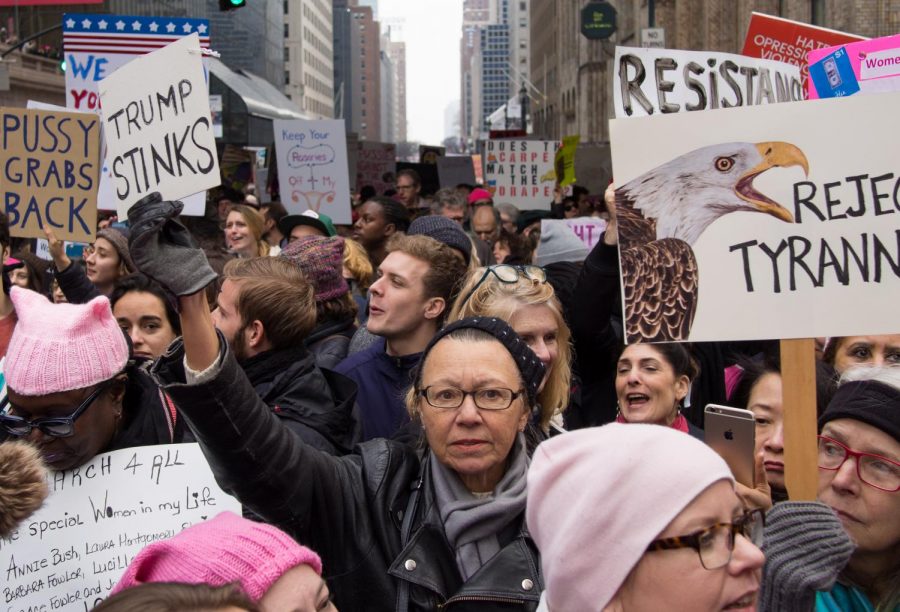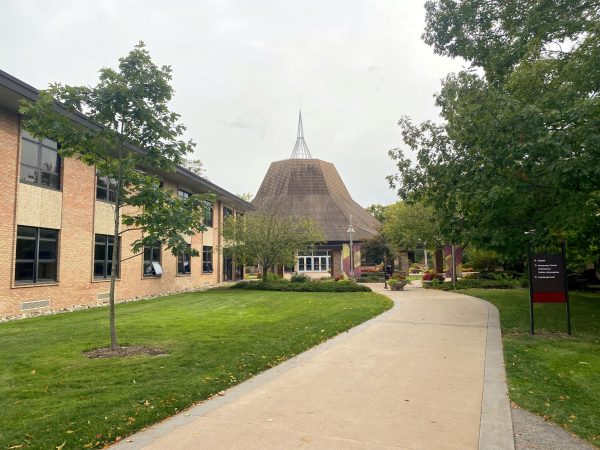2018’s marches represent faithful acts of protest
Protesters at Women’s March in New York City on January 21, 2017. Photo by Rhododendrites, courtesy Wikimedia Commons.
Calvin students put their religious convictions into action by attending the March For Life and the Women’s Marches across the country.
Some students attended the March For Life on Friday, Jan. 19, in Washington, D.C, while others attended the Women’s Marches in Lansing on Sunday, Jan. 21.
“Protesting can be a spiritual act…When you’re not alone in your grief or pain, in some ways that’s a holy space because it’s a vulnerable space,” said senior Kendra Larsen, reflecting on last year’s Women’s March in D.C.
After a year of political turmoil, people from all over the country marched to voice their concerns to Congress. Students like junior Jacklyn Vander Zee said it was comforting to have a faithful resolve by marching together.
“There were different people from all walks of life,” said Vander Zee, who attended March for Life. She and other Students For Life members joined on Friday in D.C. Catholic organizations and other Christian organizations were also in attendance.
“March for Life is something that’s definitely not shied away from having a religious affiliation…but you don’t have to be a Christian to be a part of Students for Life.”
The Students for Life organization includes members with a variety of religious opinions, but Vander Zee says they are unified in their anti-abortion goals. This year, March for Life celebrated the recent Born-Alive Abortion Survivors Protection Act which requires babies born under failed abortions to receive medical attention.
“It takes baby steps,” said Vander Zee.
The Women’s March in Lansing also consisted of a diversity of organizations; Women’s Interfaith Solutions for Dialogue and Outreach, Black Lives Matter and others were in attendance.
“Of the maybe seven protests I’ve been to in the last year, I found the Power to the Polls Rally in Lansing to have a more hopeful tone,” said senior Miriam Kornelis, who attended the Women’s March.
Power to the Polls was part of the Women’s March, and its website states that it aims to garner votes for Democratic candidates in swing states.
The Power to the Polls website specifically references particular political action the organization is supporting, from women’s rights specific concerns such as reproductive rights to issues of incarceration and rehabilitation.
Though contention escalated between pro-life and pro-choice movements within and between March for Life and the Women’s March in 2017, Kornelis and Vander Zee noted this was not as much of a concern this year. More notably, tensions grew within the respective movements.
For some students, the presence of Vice President Mike Pence and President Donald Trump at the March for Life was an encouragement to their anti-abortion stances. Other pro-lifers were conflicted to see a president support pro-life but not pro-immigration policies.
Larsen describes her own set of concerns with the Women’s March this year that motivated her to stay home.
“I think if anything my religious inclination would be to protest,” she said. But after seeing several posts on Twitter from women of color and trans-women feeling unrepresented at multiple marches, she refrained from going.
Larsen went on to say that not attending the Women’s March this year was a way of listening to marginalized people who should have felt welcome in that space but didn’t.









